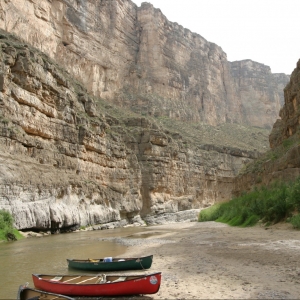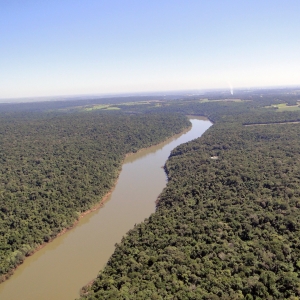Federal Water Tap, August 9: Infrastructure Bill Edges Forward in Senate
The Rundown
- Senators muster enough votes to overcome a filibuster in Senate debate over the $1.2 trillion infrastructure bill.
- The Senate Appropriations Committee boosts spending for Bureau of Reclamation water programs in a 2022 budget bill.
- Feds propose a settlement over a 2014 incident in North Dakota that was the largest inland spill of produced water from oil production.
- USDA gives $15 million to a Klamath basin agency to pay farmers not to irrigate.
- NOAA is tracking the movements of Lake Erie’s annual algal bloom.
- The EPA and Army Corps will host public meetings this month before re-defining the scope of the Clean Water Act.
- And lastly, NOAA scientist warn that the Atlantic hurricane season will still be active.
“So this is something that helps our constituents across the board. But it goes well beyond just our roads. This is also about water infrastructure in this legislation. Communities across our State deserve water infrastructure that is going to deliver them clean, safe drinking water. We have got a lot of old water systems in Ohio that need help and need it badly.” — Sen. Rob Portman (R-OH), speaking on the Senate floor in support of the infrastructure package.
“And what we saw is that Democrats want to give billions of dollars to unelected bureaucrats in the Biden administration to spend however they please.” — Sen. Ted Cruz (R-TX), speaking on the Senate floor in opposition to the infrastructure package.
By the Numbers
$2 billion: Funding for the Bureau of Reclamation in the fiscal year 2022 spending bill that was approved by the Senate Appropriations Committee. That amount represents an increase of 18 percent, or $316 million from 2021. Areas seeing more funding include desalination research, the Title XVI water reuse program, and the Lewis and Clark rural water system. There is also $450 million for emergency drought response, as determined by the Interior secretary.
$15 million: Funding from the U.S. Department of Agriculture for a drought response program in the Klamath basin of Oregon and California. A local agency will use the money to pay farmers not to irrigate, freeing up water for other users. The main irrigation canal in the upper basin is not supplying any water this year.
News Briefs
Slow and Steady
The Senate worked over the weekend, mustering enough votes to overcome a filibuster in its consideration of the bipartisan infrastructure bill.
But the chamber has not yet voted on the final version of the wide-ranging package.
There are novelties sprinkled throughout the bill. Take disaster preparation. As E&E News reports, the bill would add $3.5 billion to FEMA’s hazard mitigation program, which would allow the agency to buy out flood-prone properties or elevate homes. The money would be targeted at low- and middle-income communities and at people living in census tracts with high social vulnerability scores.
Hydraulic Fracturing Waste Spill Settlement
Under a proposed settlement to resolve criminal and civil charges resulting from a spill of 29 million gallons of hydraulic fracturing waste, an oil pipeline company operating in North Dakota will pay $35 million in fines.
State and federal agencies filed the complaints against Summit Midstream Partners, LLC and Meadowlark Midstream Company LLC. In August 2014, a pipeline owned by the two companies ruptured, spilling chemical-laden waste into Blacktail Creek and Little Muddy River. The companies continued to operate the pipeline for nearly five months after the leak occurred, the complaint alleges.
Federal agencies call it the largest inland spill of produced water from oil production.
The fines include a $20 civil penalty, which the companies can pay over six years.
Studies and Reports
Hurricane Outlook
NOAA scientists said that they still expect more named hurricanes then usual in the Atlantic this season. The forecast is for three to five major hurricanes.
On the Radar
Lake Erie Algae
NOAA is tracking the development and movements of Lake Erie’s annual harmful algal bloom. On August 4, the bloom was 180 square miles and concentrated along the western shores of Ohio. The seasonal forecast was for a smaller-than-average bloom.
Re-Writing WOTUS
The EPA and Army Corps will host five public meetings in August to gather comments before re-writing the definition of which bodies of water are protected by the Clean Water Act.
The first public meeting is scheduled for August 18. Registration for all five is available via this link.
Federal Water Tap is a weekly digest spotting trends in U.S. government water policy. To get more water news, follow Circle of Blue on Twitter and sign up for our newsletter.
Brett writes about agriculture, energy, infrastructure, and the politics and economics of water in the United States. He also writes the Federal Water Tap, Circle of Blue’s weekly digest of U.S. government water news. He is the winner of two Society of Environmental Journalists reporting awards, one of the top honors in American environmental journalism: first place for explanatory reporting for a series on septic system pollution in the United States(2016) and third place for beat reporting in a small market (2014). He received the Sierra Club’s Distinguished Service Award in 2018. Brett lives in Seattle, where he hikes the mountains and bakes pies. Contact Brett Walton





Leave a Reply
Want to join the discussion?Feel free to contribute!